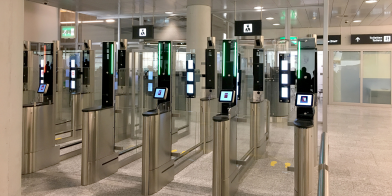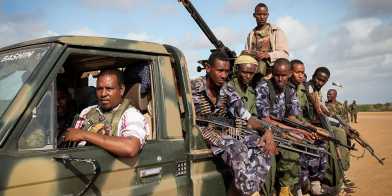2019
National Economic Supply as an Emergency Precaution

Supplying modern societies with important goods and services has become more volatile due to the globalization of the flow of goods. In Switzerland, enterprises and the state cooperate on national economic supply to ensure the provision of vital requirements in times of crises. Changes are required if this system is to continue in the future, argues Andrin Hauri in this CSS Analysis.
Individual Disaster Preparedness: Explaining Disaster-related Information Seeking and Preparedness Behavior in Switzerland
In this CSS Risk and Resilience Report, Marco Käser, Linda Maduz, Tim Prior & Florian Roth investigate the drivers of information seeking and hazard preparedness behaviour in the German and French speaking parts of Switzerland. The results show that people appear to be seeking more information about risks and demonstrate higher levels of risk perception, but this does not necessarily correlate with increased knowledge about potential preparations or actual preparation.
2019 in Review
The Center for Security Studies (CSS) at ETH Zürich would like to wish you all a happy holiday season. During the holidays, we look back over some of the core themes covered by our Think Tank and researchers in 2019. These include cyber security politics; Artificial Intelligence (AI); China’s “Belt and Road Initiative” and Eurasia’s geostrategic importance; Euro-Atlantic security; mediation and peace promotion; military doctrine and arms procurement and socio-technical resilience and disaster preparedness
Can Terrorism Abroad Influence Migration Attitudes at Home?
Does a terrorist attack in Paris or London influence public opinion on migration in Berlin or Vienna? A recent study by Tobias Böhmelt, Vincenzo Bove and CSS researcher Enzo Nussio published in the American Journal of Political Science demonstrates that public opinion on migration “at home” is indeed systematically driven by terrorism in other countries.
Dilemmas and Trade-Offs in Peacemaking: A Framework for Navigating Difficult Decisions
The activity of peacemaking is inherently characterized by competing priorities that do not seem to be attainable at the same time. This article by Anne Isabel Kraus, Lars Kirchhoff, Tatiana Kyselova, Julia Palmiano Federer as well as CSS’ Simon J. A. Mason and Owen Frazer focuses on the question of how third parties can deal with dilemmas and trade-offs when mediating violent political conflicts.
New Technologies for Border Controls in Europe

Rapidly increasing mobility, especially with regards to air traffic, poses new challenges for the border agencies in Europe, argues Julian Kamasa in this new CSS Analysis. New technologies may help to manage the movement of people and ensure security. As a Schengen member, Switzerland can benefit from these developments. However, a number of adaptations are required.
The Middle East and China’s Belt and Road Initiative
China’s presence in the Middle East is on the rise, particularly in the framework of its Belt and Road Initiative. As the US draws down its commitments in the region, Europe will need to consider what greater Chinese involvement in the region means for its interests, argues Lisa Watanabe in this new CSS Analysis.
Organized Crime and Terrorist Networks
This new edited volume explores organized crime and terror networks and the points at which they intersect. The collection is the outcome of empirical research, seminars, workshops and interviews by a multinational consortium of researchers within the TAKEDOWN project and includes two chapters co-authored by CSS’ Matteo Bonfanti.
Educating Engineers for Resilience
In this CSS Policy Perspective, Benjamin Scharte argues that critical infrastructures are becoming more complex and interdependent, which in turn is increasing their vulnerability. The resilience of these systems against disruption and failure is thus crucial. According to the author, engineers can help increase critical infrastructure resilience if they acknowledge the complexity and socio-technical nature of such infrastructure.
The Ties That Bind Ethnicity, Pro-government Militia, and the Dynamics of Violence in Civil War

How do pro-government militia (PGM) influence the dynamics of violence during civil conflict? In this paper, Luke Abbs, CSS’ Govinda Clayton and Andrew Thomson address this question by looking at ethnic ties between militia and governments. The authors find that the presence of co-ethnic militia, that is groups composed of the ruling elite’s ethnic kin, are associated with longer and more intense civil conflict.